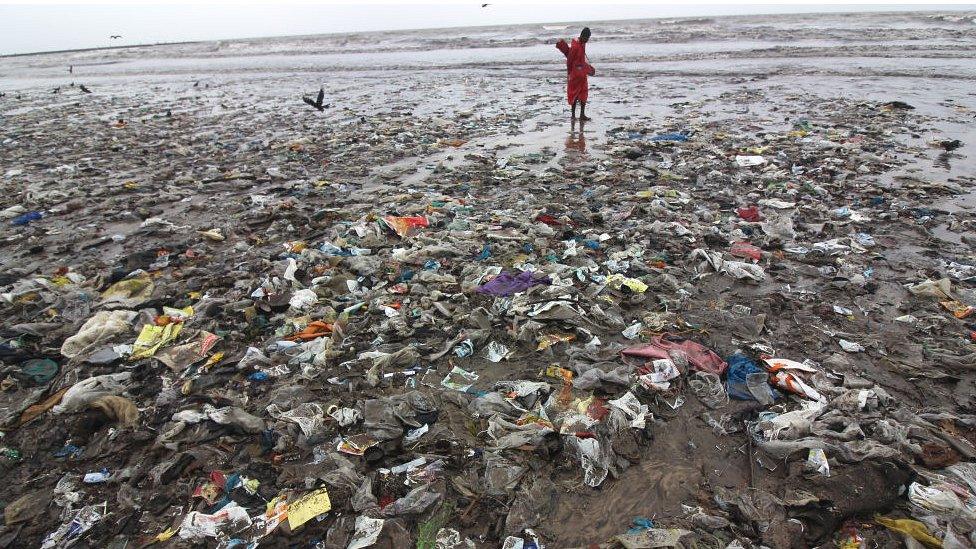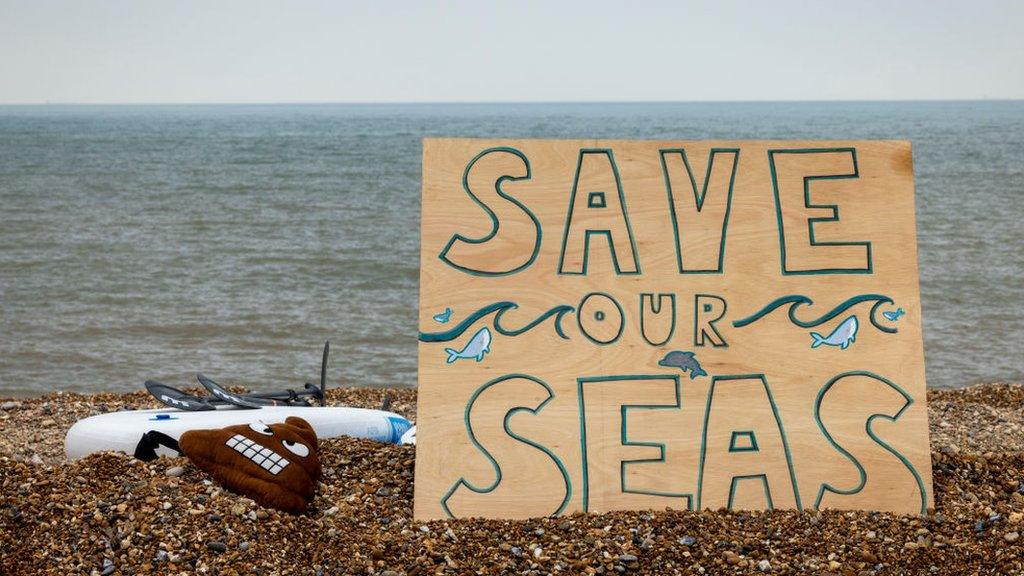Climate change: Could recycled sewage solve future water shortages?
- Published
- comments
UK Heatwave: Where London's water comes from
London is the driest part of the UK and with climate change and a growing population, water companies face significant challenges.
Not many of us will forget the hot summer of 2022 and what it did to water demand.
As droughts are going to get worse with a warming climate, it's estimated London and the Thames Valley will need an extra billion litres of water a day by 2075.
So what is the answer? Certainly reducing our water use and cutting the poor leakage rates will play a part.
Thames Water also wants to take more from the River Thames at Teddington which could lead to an increase of 75 million litres a day.
The company plans to replace that water with recycled sewage effluent from the Mogden treatment works above the Teddington Weir.
It certainly is a controversial plan and a similar scheme in 2019 was rejected. Many are concerned about what increased temperatures and chemicals could do to marine life.
"We have to make sure that whatever we are doing to manage our water supply does not have a negative impact on the quality of the water and obviously all the biodiversity that depends on it," says Sarah Olney, the Lib Dem MP for Richmond Park.
"That's the major concern but also lots of people have already got lots of concerns about how much sewage is already going into the river. So much of it is uncontrolled; we don't have the tools or the oversight or the powers and the agencies who are meant to be in charge of these things.
"We don't have the funding to keep a proper eye on what's going on and monitor the quality of the water."
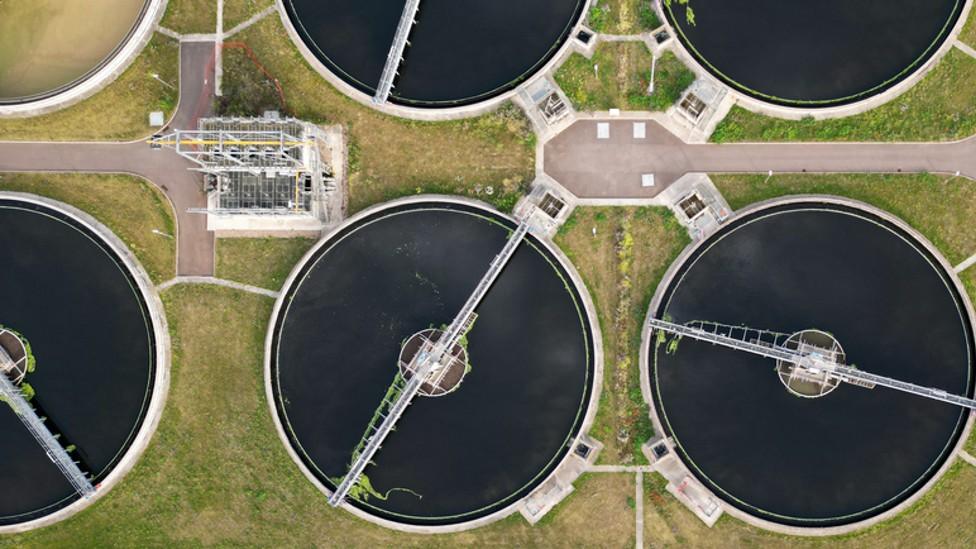
Thames Water wants to use recycled sewage effluent to replace water it takes from the Thames
Thames Water says the plan is the cheapest way to get resilience in the water supply, and it is investing in more reservoirs and fixing its poor leakage record. It currently loses 20% of its supply in leaks.
Any plan would be paid for with higher bills and the firm says recycling water via the Thames is the most cost effective method.
"What we need to do is keep the flow in the river at the same rate so we don't put the river under stress," explains Leonie Dubois from Thames Water.
"We'll do that by taking freshly treated water from Mogden sewage works, we'll treat it to a high standard and put it back into the river to make sure the flow stays constant.
"We're working very closely with the Environment Agency on what that impact might be and we're confident that we are within the thresholds that's safe for us to undertake this project.
"But we are at a really early stage and we have to do much more environmental assessment, and importantly we want to hear from customers."
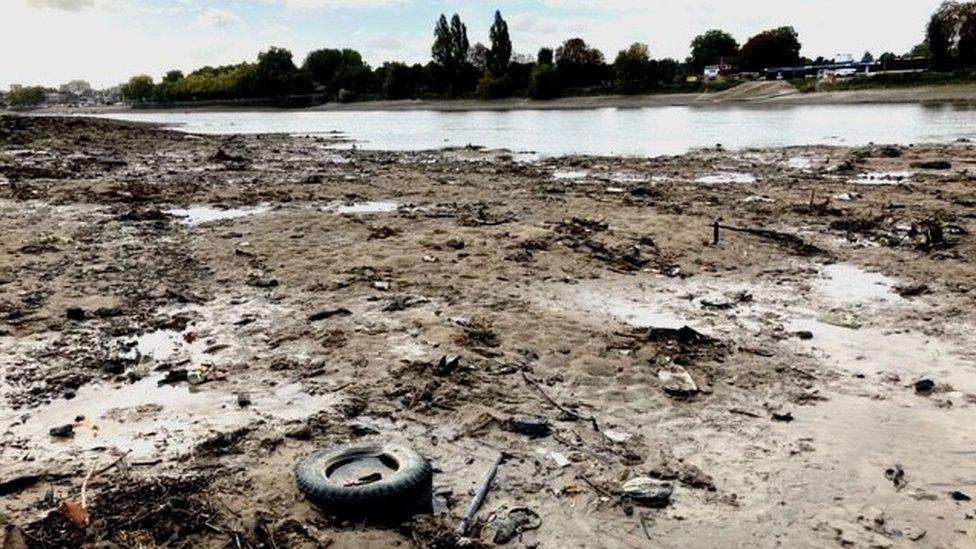
London is one of the driest parts of the UK
Sewage in rivers - even if it is recycled - is politically very sensitive at the moment and don't forget sewage works already discharge treated effluent into the Thames, albeit not at the proposed Teddington location.
Awareness is extremely high on the issue and Thames Water has a considerable challenge persuading people this is the way forward, even if other plans would cost more.
A public consultation, external is open on the scheme.

Follow BBC London on Facebook, external, Twitter , externaland Instagram, external. Send your story ideas to hellobbclondon@bbc.co.uk, external
Related topics
- Published27 December 2022
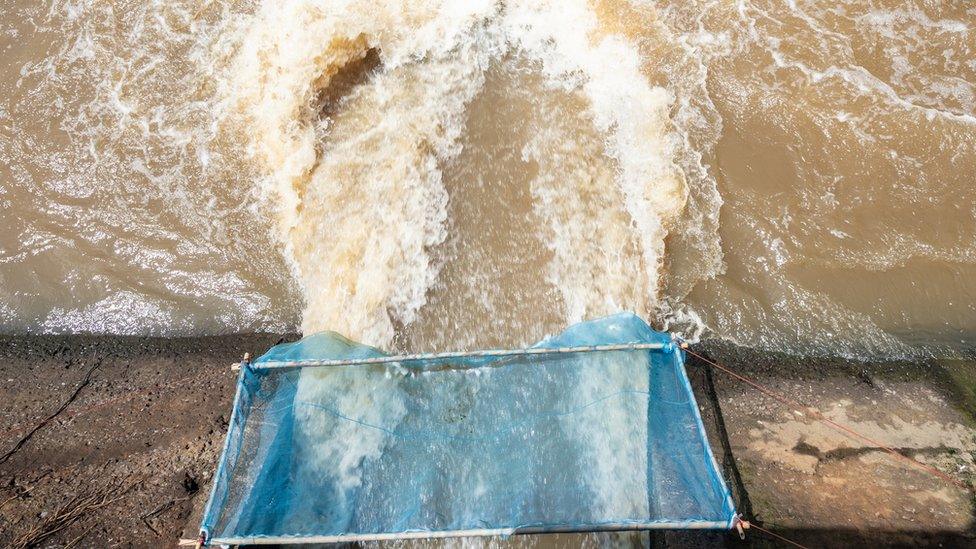
- Published17 December 2022
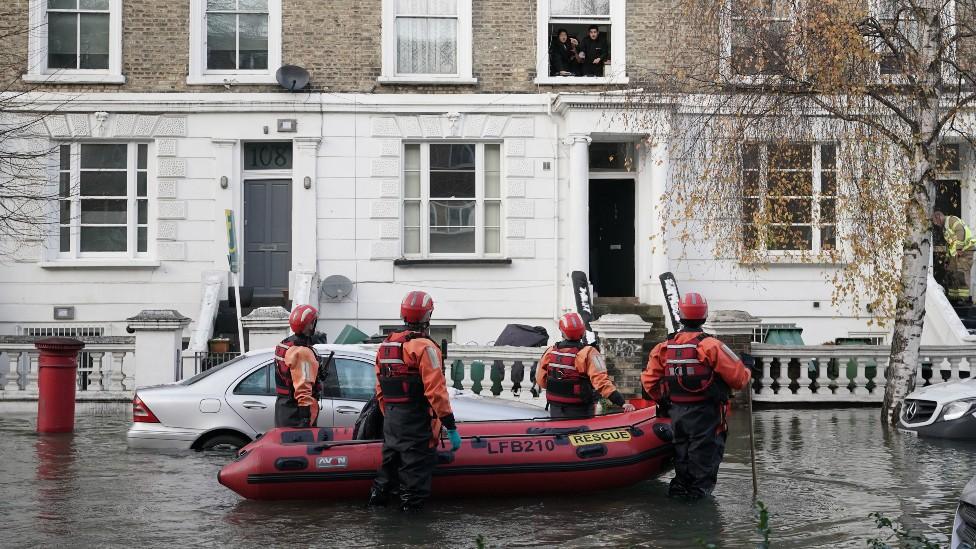
- Published27 September 2022
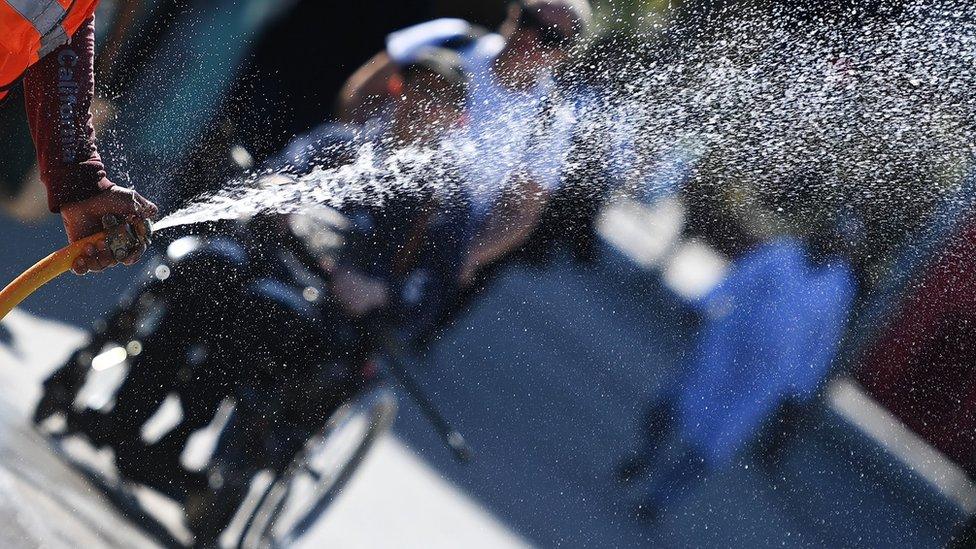
- Published12 August 2022
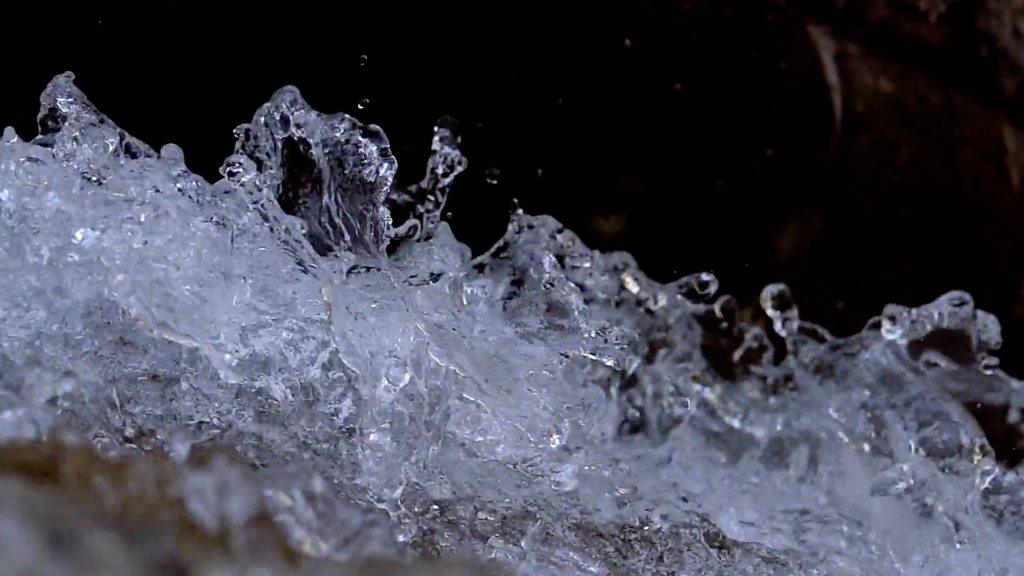
- Published18 October 2022
- Published11 June 2021
